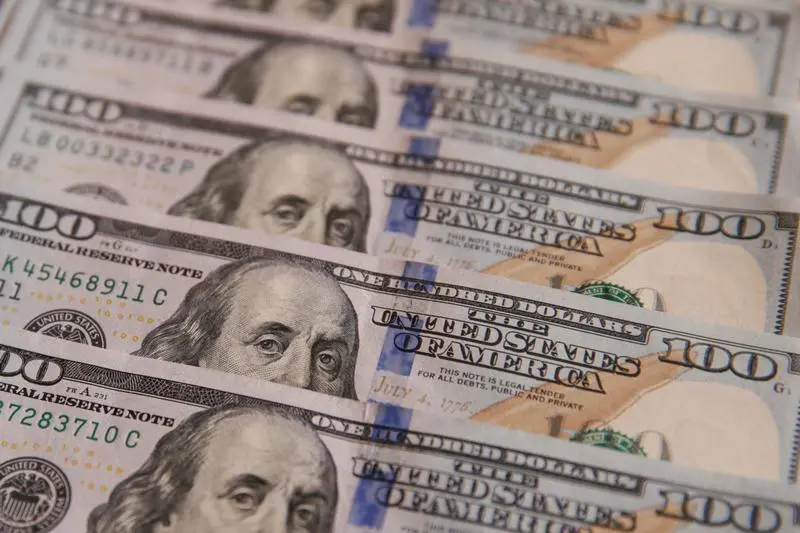PHOTO
TOKYO: The dollar held on to fresh highs on Tuesday, pushing the yen down closer to an intervention zone, after strong U.S. economic data bolstered the view that the Federal Reserve will keep interest rates higher for longer.
The euro also traded near a one-year low against the greenback, dropping below January's 1.0482 nadir, as manufacturing surveys released in both Europe and the U.S. on Monday highlighted the divergence between the two economies.
The dollar index rose around 0.5% to 107.06, at one point hitting as high as 107.12, its highest since November 2022.
U.S. manufacturing took a step further towards recovery in September as production picked up and employment rebounded, according to a survey on Monday that also showed prices paid for inputs by factories falling considerably.
The dollar also got a boost from rising U.S. Treasury yields as the upbeat economic news underpinned the higher-for-longer Fed rates views, while the last-minute deal that averted a government shutdown reduced demand for U.S. debt.
A batch of strong U.S. economic data over recent weeks has strengthened expectations that the Fed will keep rates elevated for a longer period, with several policymakers warning of the risk of more tightening if inflation doesn't keep slowing as expected.
The selloff of U.S. Treasury bonds is the "talking point" of financial markets, said Carol Kong, economist and currency strategist at Commonwealth Bank of Australia, and a trend that likely will continue as long as U.S. economic data remains strong.
"Tonight’s U.S. JOLTS job openings and non-farm payrolls on Friday can be a catalyst to push up U.S. yields and the USD if they surprise to the upside."
The rally in the dollar has put further pressure on the yen, pushing it closer to the psychologically significant 150-level overnight that markets view as a line in the sand for Japanese authorities that could spur intervention as it did last year.
"Given the warnings from Japanese officials, we would not be surprised if the BoJ intervenes soon to prop up the JPY," Kong added.
Japan's key economic ministers warned again on Monday that authorities were watching with a "strong sense of urgency" as the yen slid.
The yen was last at 149.80 against the dollar, just off the overnight low of 149.88.
The euro fell to as low as $1.0462 in the Asian morning, the lowest since December last year, after a survey of euro zone PMI showed on Monday that demand kept shrinking at a pace rarely surpassed since the data was first collected in 1997.
Sterling was last at $1.20790, its lowest since March 16. The Aussie remained mostly flat ahead of a rate decision by the Reserve Bank of Australia later in the day. Australia's central bank will hold its key interest rate steady at 4.10%, a Reuters poll of economists found, but another hike is seen with a peak cash rate of 4.35% next quarter as inflation remains above target.
(Reporting by Brigid Riley Editing by Shri Navaratnam)





















